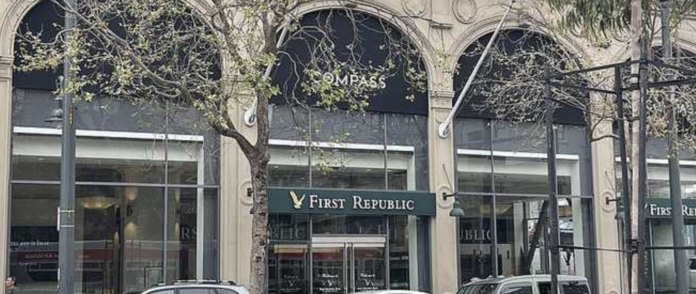Silicon Valley Bank was the second largest bank failure in American History when it collapsed in March. Just two months later it is only the third largest.
Um… congratulations?
First Republic Bank, the troubled bank in San Francisco, is no more. Federal regulators seized “the substantial majority” (or $229 billion) of the bank’s assets and deposits on Monday morning and sold them to JPMorgan Chase. Jamie Dimon, the chairman and CEO of JPMorgan Chase, said that “the government invited us and other to step up and we did.”
JPMorgan Chase’s assets total over $3.7 trillion, so a small bank was no big deal.
It just came to me out of the blue to ask someone with a better understanding than mine when “too large to fail” turns into “too large to bailout.”
The First Republic branches that are currently open will be available to customers today. The FDIC assured customers that their deposits would continue to be covered by the FDIC and they did not have to change their bank relationship to keep their deposit insurance.
First Republic was hit by a wave of withdrawals after the collapse of the Bay Area Silicon Valley Bank and New York City Signature Bank in March.
It’s true that I did just tell you about First Republic. Last week, I wrote about the deteriorating real estate market in San Francisco’s Financial District — once some of the most expensive office space anywhere.
First Republic announced that it was laying off one quarter of its workforce, and reducing the amount of office space in the Financial District they leased. It’s not clear how many of First Republic’s employees or downtown offices will remain after the bank has closed. Before this morning’s collapse, First Republic was already preparing to turn the One Front Street skyscraper into a 38-story “ghost town”. I used to work in that building back then.
The news of today could be a further blow to an already breathless city.
Three of America’s top five bank failures occurred under the watch of President Joe Biden, even when adjusted for inflation.


